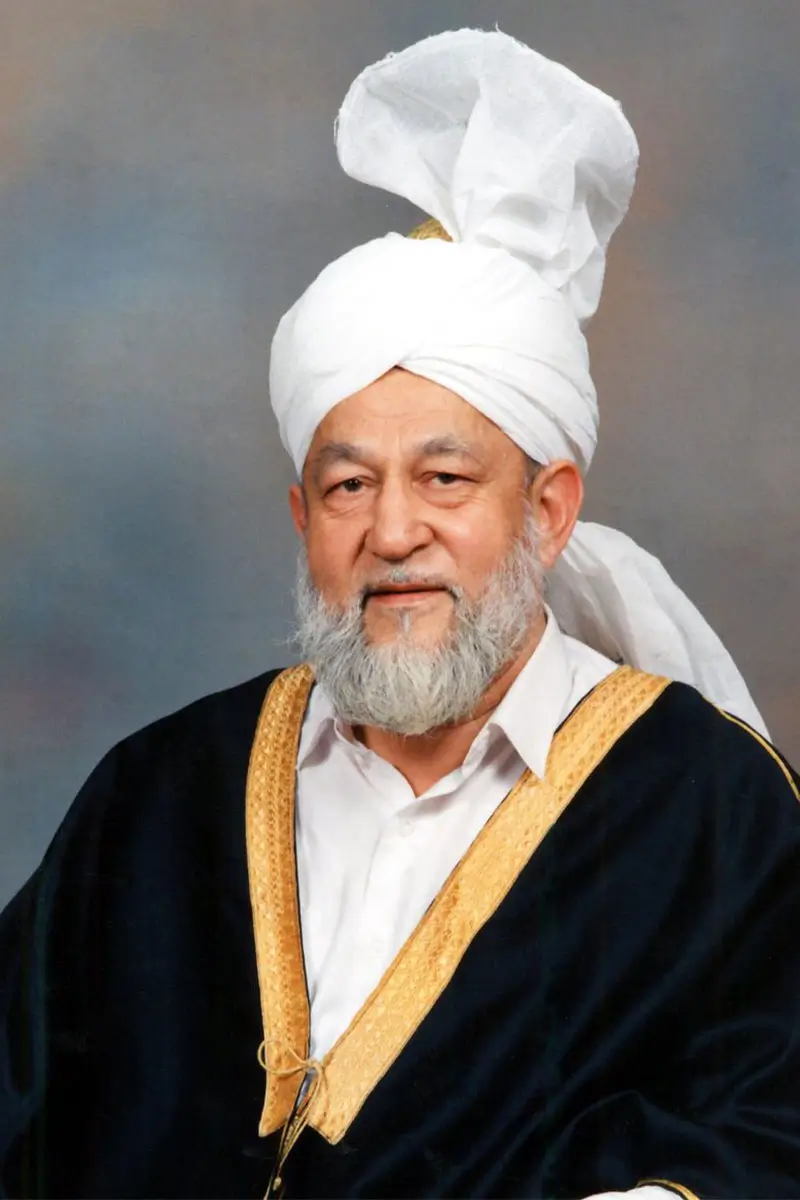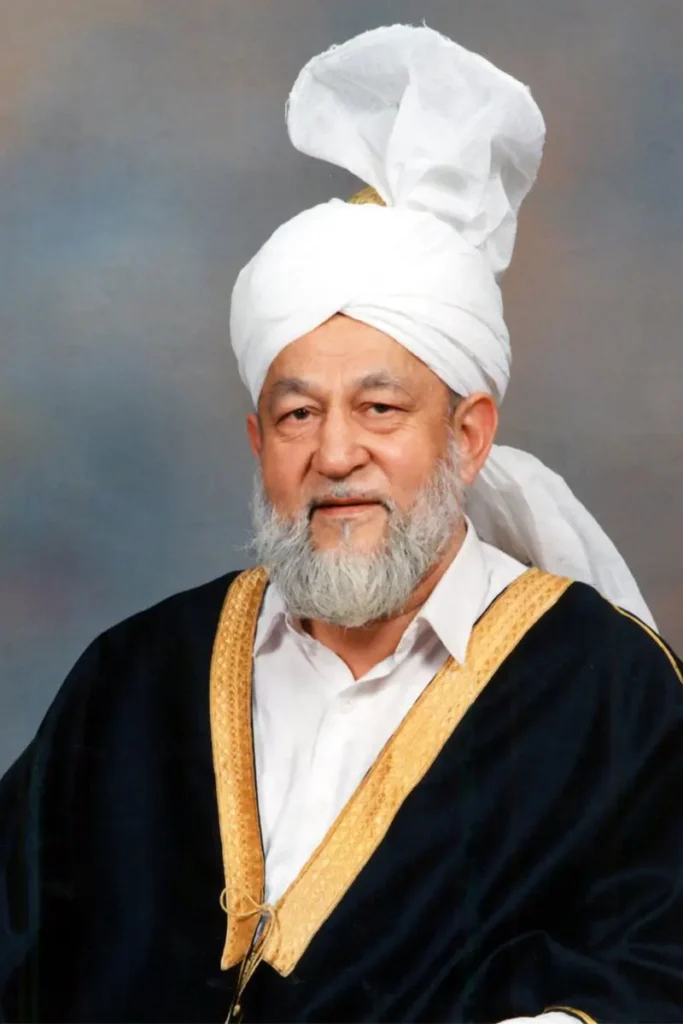Questioner: Assalamu alaikum, I think that “La tufazl ala Musa la tufazul al Yunis bin Mata’ it is similar to
لَا نُفَرِّقُ بَیۡنَ اَحَدٍ مِّنۡ رُّسُلِہٖ , all are messengers of God. But on the other hand the Quran says, تِلۡکَ الرُّسُلُ فَضَّلۡنَا بَعۡضَہُمۡ عَلٰی بَعۡضٍ so this clears the question, all are equal and one is over the other, or they are both right?
Huzoor (rh): I follow what you mean, but I wonder if everybody has understood you correctly, you won’t of course.
What he wants to point out is in a very wise way of making you understand, he draws your attention to two statements of the Holy Quran which are apparently contradictory to each other but are not contradictory to each other. One statement says,
لَا نُفَرِّقُ بَیۡنَ اَحَدٍ مِّنۡ رُّسُلِہٖ
That the admission of all the prophets and those who believed with them was that do not differentiate between any of these prophets, yet the Holy Quran goes on to declare, (2:254)
تِلۡکَ الرُّسُلُ فَضَّلۡنَا بَعۡضَہُمۡ عَلٰی بَعۡضٍ
These are the prophets, messengers, of whom we exalted in status over others, so apparently the two statements are contradictory to each other, yet they are not. The meaning of the one belongs to a different region and the meaning of the other belongs to a different region, so they do not contradict each other, only the angle of the region is different.
When Allah says لَا نُفَرِّقُ بَیۡنَ اَحَدٍ مِّنۡ رُّسُلِہٖ, which is the admission of the people who believe, it means, this verse means, that whatever comes from God, as far as belief in that person is concerned, we will not differentiate. We will not differentiate between messengers of God as far as their truth is concerned, whether they belong to Arabia or to other countries of the world, whether they came in the past or they came now, or they appear in the future, whoever comes from God, as far as our belief is concerned, we will make no differentiation of colour or creed or geographic regions or time. That does not mean that they are equal in status.
Yet, in the other place, when the Holy Qur’an says,تِلۡکَ الرُّسُلُ فَضَّلۡنَا بَعۡضَہُمۡ عَلٰی بَعۡضٍ, it means that of all the prophets who were all true, some of them exalted above others, so the statements are not contradictory.
Similarly, we think the tradition of the Holy Prophet (sa) can be reconciled, where he says he is not superior to other prophets, he may mean in a way different to the way in which he declares that he was the most superior, Khatam un Nabiyeen, the very best of things, he declares it very categorically. So, what doctor sahib has in mind is that maybe the reconciliation lies in the same direction as we reconcile the two verses of the Holy Qur’an. Is that what you had in mind?
Questioner: Correct? Yes, sir.
Huzoor (rh): Now, this is what he wanted to say. But there, the hadith which you have quoted, I don’t think it is possible to reconcile the tradition, these two traditions in the same manner as these two verses can be reconciled. There, the issue involved was the issue of preference of one over the other. So, the declaration of Holy Prophet (sa) was in response to that particular question. So there, you can’t say that here he might have meant a completely different thing. You follow the concept or not?
The hadith to which Mr. Rashid pointed out, if the wording is correct, then it is very difficult to handle the wording of that hadith. The wording is, do not declare me to be superior or exalted above all other prophets. Or, no, no, sorry, do not declare me to be superior over any prophet in the world. This is the wording of the hadith. This is why I am rejecting this wording because it is very difficult to reconcile this with the declaration of the Holy Qur’an and other traditions of the Holy Prophet (sa). But if, as I believe, the true wording is, ‘la tukhayarooni’ or ‘la tufadziluni ala Musa’, then you can easily reconcile this statement with other statements of the Holy Prophet (sa) and the Holy Qur’an. Because there, Hazrat Musa’s followers’ feelings were hurt. So, in that particular situation, Prophet Muhammad (sa) prohibited his followers to declare him to be superior. Where the followers of other prophets might take offense. Because that was a particular situation. I personally believe that this wording is not correct. Because the same incident is related differently and more logically in other versions of the same tradition.








